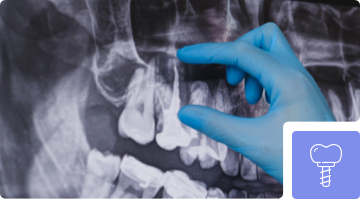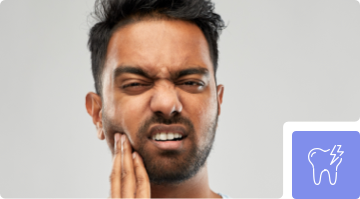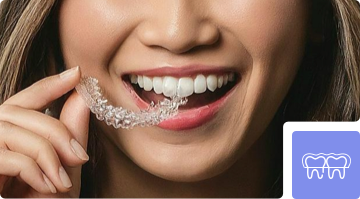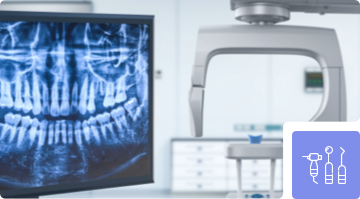While a root canal can feel daunting, you might be surprised to learn how quickly you can get back to your normal routine—including enjoying your favourite meals.
You can eat after a root canal, but starting with caution is key. The foods you choose and when you eat them are important for healing and comfort. Your dentist can guide you on how to make your recovery smoother and keep your new smile bright.
What Is a Root Canal?
A root canal is a common dental procedure designed to save a tooth that has been damaged or infected. When the pulp of the tooth becomes inflamed or infected, this can cause uncomfortable symptoms such as:
- Pain
- Swelling
- Sensitivity
If left untreated, this infection can worsen, potentially spreading to other areas of the mouth and compromising your overall oral health.
The root canal procedure works by removing infected or damaged pulp from inside the tooth, thoroughly cleaning and disinfecting the inner chamber, then sealing the tooth with a durable filling material. This process not only preserves the tooth, but also allows you to avoid a tooth extraction and maintain your natural smile.
Modern advancements in dental technology have made root canals more efficient and less intimidating than many people imagine. With proper post-procedure care, your tooth can remain functional for many years, if not a lifetime.
When Might You Need a Root Canal?
There are several reasons why a root canal might be necessary. The most common include:
- Deep decay: Cavities or decay that reach the pulp can lead to infection and severe pain.
- Tooth trauma: A cracked or broken tooth caused by an accident or injury can expose the pulp, leading to inflammation or infection.
- Repetitive procedures: Receiving multiple dental treatments on the same tooth can weaken its structure, increasing the risk of infection.
- Cracks or fractures: Even small cracks can allow bacteria to reach the pulp.
- Gum disease: Advanced stages of gum disease can affect the roots of the tooth and surrounding tissues, leading to the need for a root canal.
If you notice persistent pain, swelling, or sensitivity to hot and cold, seek dental care as soon as possible. Early intervention can make all the difference in preserving your tooth and avoiding more invasive procedures.
What’s Safe to Eat Right After a Root Canal?
After a root canal, you should give your mouth time to recover. Wait a few hours before eating, as this allows the numbness from anaesthesia to wear off. Eating too soon may increase the risk of accidentally biting your cheek, lips, or tongue.
Once you’re ready to eat, stick to soft, cool, and gentle foods that won’t irritate the treated area. Some great options include:
- Yogurt
- Applesauce
- Ice cream (without hard or crunchy toppings)
- Smoothies
- Pudding
It’s best to avoid foods that are hot, crunchy, tough, or spicy right after the procedure. Hot foods can increase sensitivity and discomfort, while crunchy textures may put unnecessary pressure on the treated tooth.
The First Few Days Post-Procedure
During the initial days after your root canal, you may experience tenderness around the treated tooth. This is perfectly normal and usually subsides within a few days. During this time, it’s important to stick to foods that are easy to chew and won’t strain your mouth.
Some great choices include:
- Mashed potatoes
- Blended soups (lukewarm, not hot)
- Scrambled eggs
- Oatmeal
- Soft bread or rolls
At the same time, avoid foods that could interfere with your recovery:
- Sticky items (like taffy, caramel, or chewing gum): These can pull at your dental work or become lodged in the treated area, causing irritation.
- Acidic drinks (like orange juice, soda, or lemonade): These can irritate sensitive tissues and increase the risk of further decay.
- Crunchy snacks (like chips or crackers): These can be difficult to chew and may irritate the tooth.
To aid recovery, drink plenty of water. Staying hydrated helps keep your mouth clean and washes away any debris remaining from the procedure.
Long-Term Foods to Avoid & Enjoy
Once the initial healing period has passed, you can begin introducing firmer foods into your diet. However, it’s important to protect your treated tooth and avoid anything that could damage it or compromise its strength in the long run.
Here are some foods to minimize or avoid altogether:
- Hard foods: Nuts, popcorn, hard candy, and similar items can place unnecessary stress on your treated tooth.
- Sugary snacks & drinks: High sugar consumption can contribute to tooth decay over time and weaken your overall oral health.
- Chewy or sticky foods: Items like gummy candy or dried fruit can stick to your teeth and are difficult to clean off completely.
Instead, focus on a balanced diet that supports your oral and general health. Some great choices include:
- Fresh fruits (cut into smaller pieces if needed)
- Steamed or roasted vegetables
- Lean proteins like chicken or fish
- Whole grains
By maintaining a nutrient-rich diet, you can help your treated tooth remain strong and avoid future dental issues.
Protect Your Smile with Expert Advice
A root canal is an effective way to preserve your natural tooth and maintain your oral health. With proper care, your treated tooth can last for many years, allowing you to enjoy your favourite foods and live without discomfort.
As your mouth heals, you can gradually return to your normal eating habits while being mindful of foods that may harm your teeth in the long run.
If you’re preparing for or recovering from a root canal, our team at Rundle Dental is here to help. We offer personalized advice and expert care to keep your treatment smooth and comfortable. Contact us today to schedule your appointment and learn more about keeping your smile healthy and strong!










